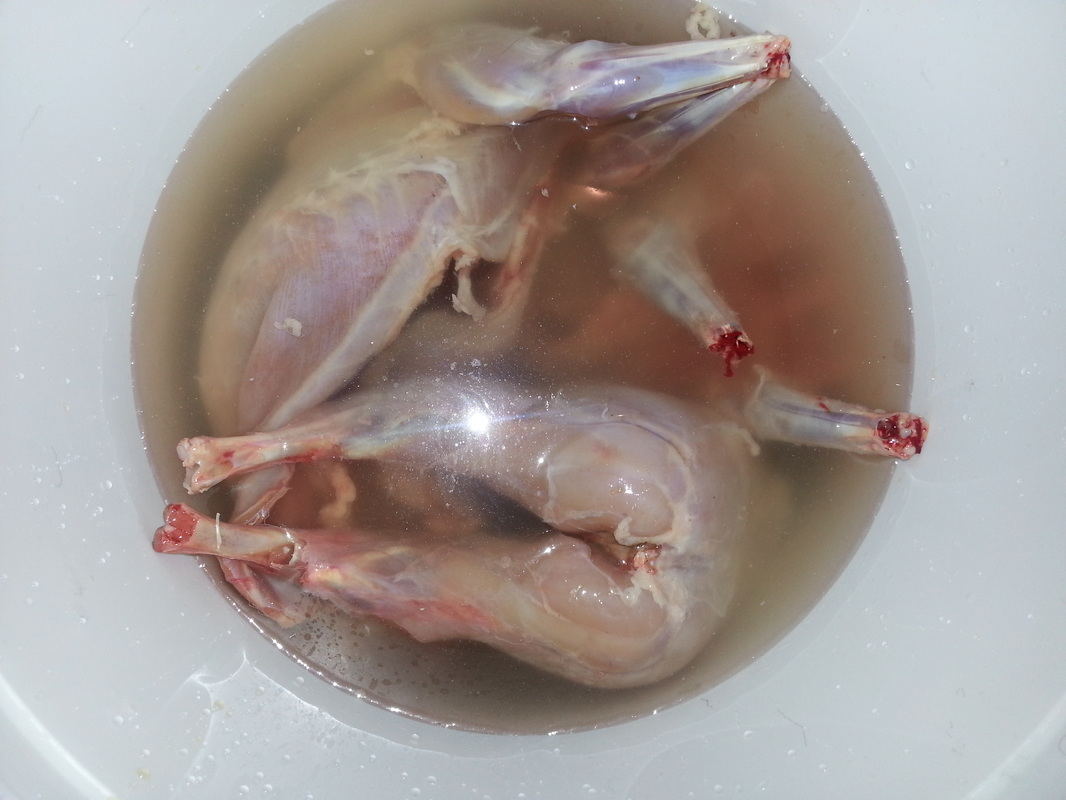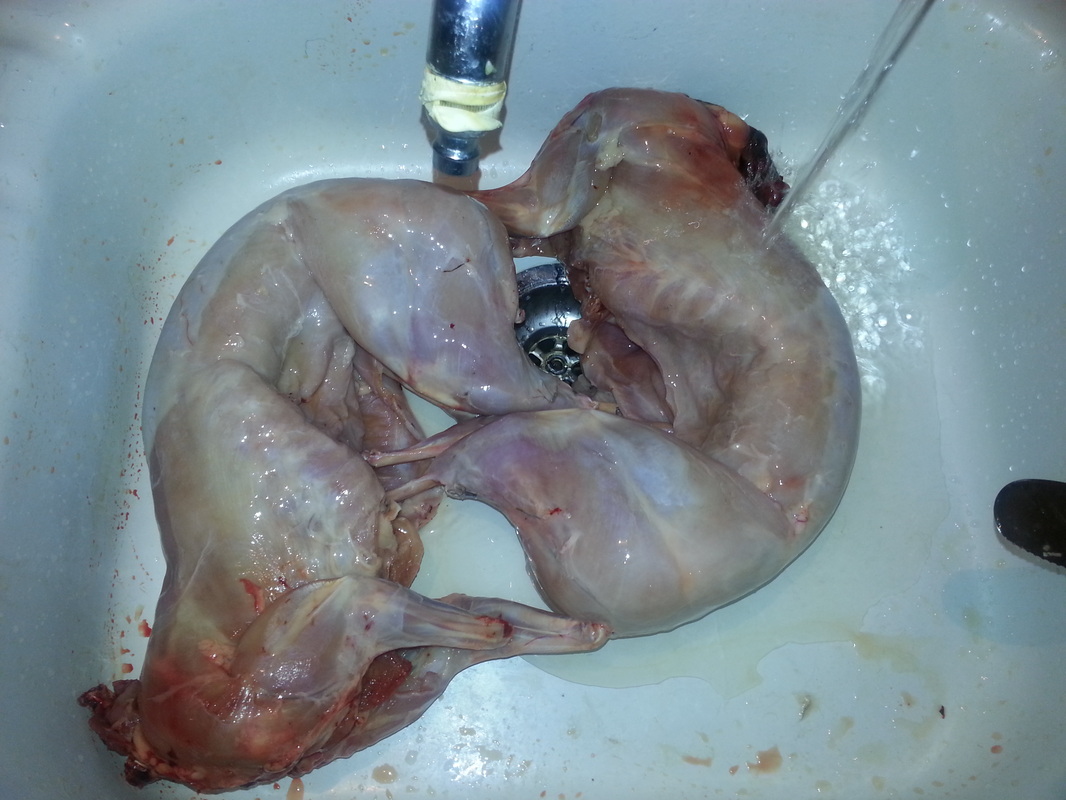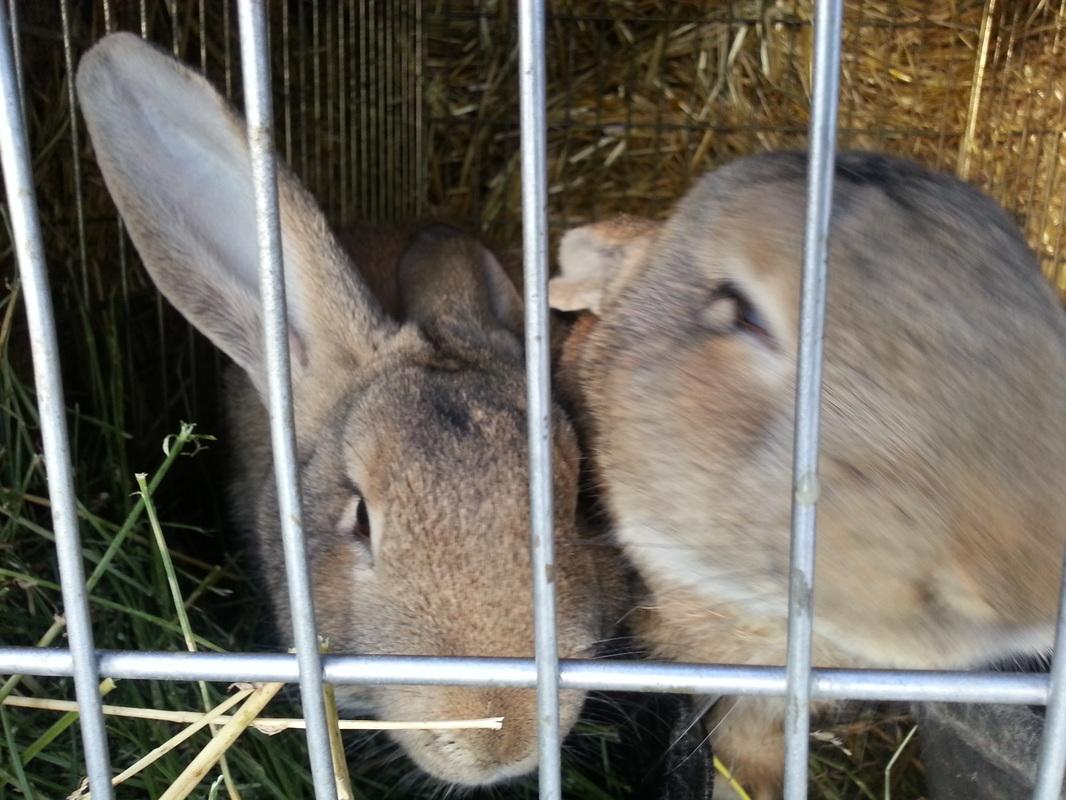I felt that way about the rabbits and prolonged their deaths until they outgrew their cages. Then they had to go. I tried to sell them, but there were no takers, so the only option that was left was to butcher them. I could not kill them though. Every day I handled them, petted them, watched them and kiilling them simply was out of the question. My friend volunteered to come and dispatch them for me and in return, though not much pay, I offered a rabbit to him. He was ready to accept the rabbit, a prime breeding buck, however; the wife was not interested in raising rabbits. In the end they took the rabbit home butchered instead.
That left four rabbits for me. I brined them overnight and then next day drained the brine and froze three and half of them, and cooked the rest of one in the crock pot. The aroma of the rabbit filled the little farmhouse with the tempting smells of deliciousness. And when it was ready, the rabbit was tender and full of the most amazing flavour, moist and absolutely delightful. The taste and texture was incredible and that changed my mind about raising little bunnies for food right then and there. The rabbits I have are Flemish Giants and the largest at 5 months, dressed out at 16 pounds and the lightest at 12, still very large. The rabbits are a very big breed and the buck I have is imported from Holland. This summer I will breed the does several times and then keep all the rabbits for meat. Perhaps I might be able to manage 50 rabbits for the year, one a week.
The rabbits started out being fed rabbit pellets, but I wanted to know what ingredients were used to manufacture the pellets. The rabbits ate them readily and did not want any other food. Slowly I switched them over to a mix of grains: whole oats, barley, wheat and field peas, plus they got alfalfa and hay for roughage. I will not feed pellets again becuase when I finally did discover the ingredients, there were ingredients that I prefer not to eat. Canola meal was first, but they also included corn and soy, all GMO crops.
The housing for the rabbits was problematic. I do not have real rabbit cages, so I put the babies in dog kennels and for the winter surrounded the kennels with straw bales to keep the rabbits warm. The two does live in a 5 foot by 7 kennel divided in half and they each have two straw bales to create dens in. The male rabbit lives in a hutch with a special box filled with straw inside the hutch to keep him from freezing. I am still not sure that is warm enough though. For the summer, when there are lots of babies, I have been buying cribs and wire panels from stores. The cribs are easy to convert to a two rabbit cage and they can be had for around 25 dollars each. A proper cage costs about 60 dollars per rabbit. Dishes can be made from tin cans and water dishes from plastic pop bottles. In winter the water bowls need to be rubber so the ice can be hanmmerd out without injuring the bowls. The babies should be full grown by winter though and only the breeding stock will be kept over the winter.
Have you ever had a roast farm rabbit? You should try it !




 RSS Feed
RSS Feed